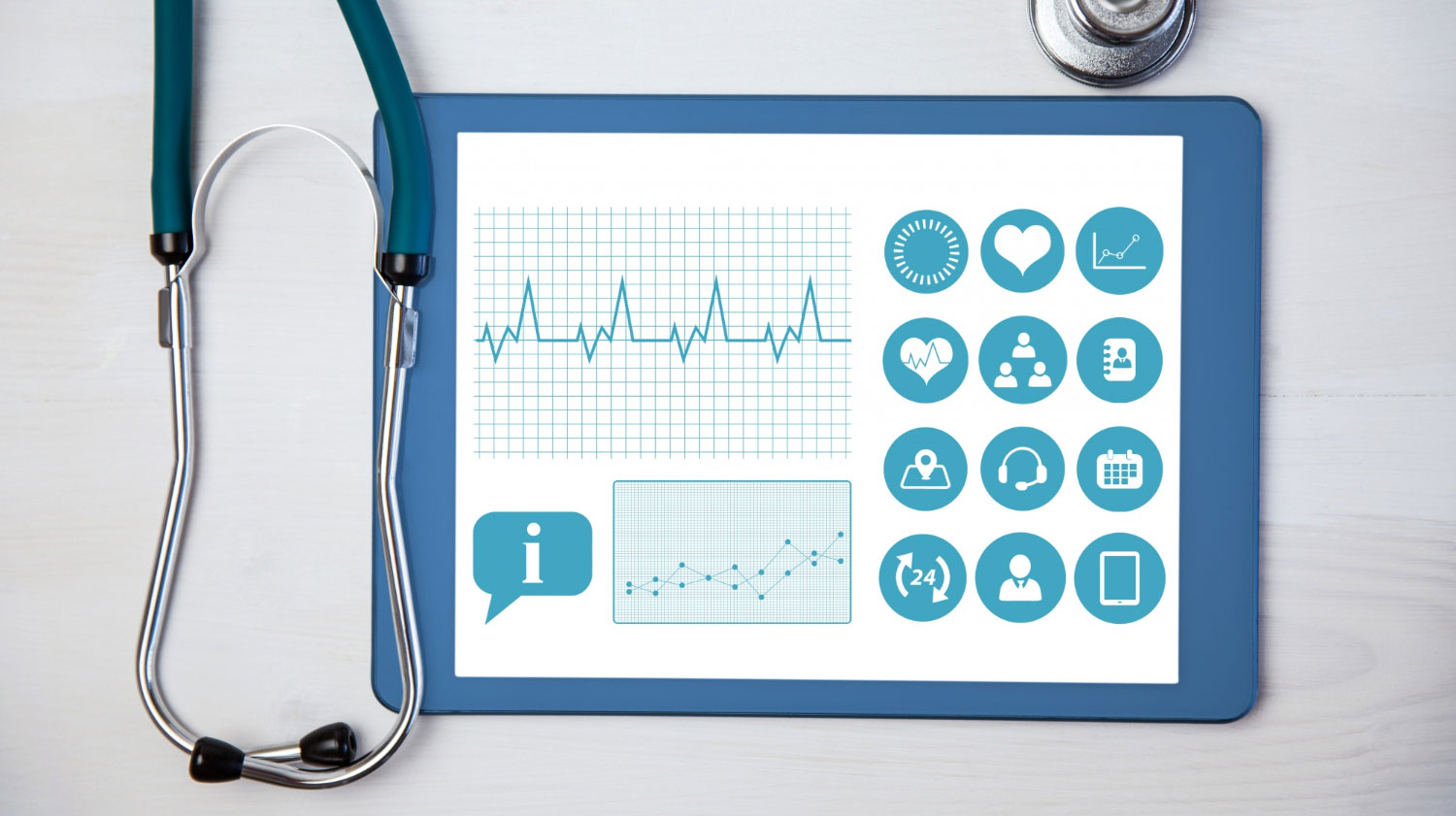
Blog
What is Disease Management and What are the Benefits for Patients?
Even in today's advanced healthcare environment, chronic diseases cast shadows over millions of lives. Chronic illnesses, alternatively called chronic noncommunicable diseases (NCDs), typically develop slowly and persist, resulting from a mix of genetic, physiological, environmental and behavioral aspects.
WHO statistics indicate that by 2050, chronic diseases like heart diseases, lung diseases, diabetes or cancer could account for 86% of the 90 million annual deaths. Behind these numbers lie real people confronting the daily challenges of their disease conditions with all the medications, appointments and lifestyle adjustments. Furthermore, the growing rates of chronic diseases place considerable pressure on healthcare facilities.
This situation raises a crucial question: Can the healthcare IT industry implement these conditions' care more effectively? The answer is disease management, a comprehensive approach that eases the burden of chronic illnesses. In essence, disease management encompasses a scope of interventions for quality of life, mitigating the progression of chronic conditions and optimizing patient care. At Tiga Healthcare Technologies, we aim to provide the most effective solution to strengthen this answer and improve chronic condition management.
Our blog will explore disease management and how healthcare professionals, authorities and patients benefit from it. We'll explain key parts of disease management, its benefits to patients and the effectiveness of disease management programs. We’ll then examine our Chronic Disease Management product in detail.

Key Parts of Disease Management
Let's start with the basics: What is disease management in healthcare? Disease management programs involve the coordinated efforts of healthcare professionals to reduce healthcare costs, workload and risks and enhance the quality of life for individuals with chronic conditions. Eventually, these proactive methods contribute to faster and more helpful treatment, slowing the progression of those diseases.
In other words, disease management’s meaning involves a holistic approach that integrates preventive, diagnostic and therapeutic measures into comprehensive solutions. This way, proactive identification of risk factors and implementation of disease management strategies control disease progression.
Key parts of disease management contain a multidisciplinary nature with collaboration needs among healthcare professionals, providers and patients. There are several critical components of effective disease management programs:
- Identifying Target Audiences: Trying to do everything at once generally fails. Thus, it's essential to determine the diseases to be covered in the program and how those affected will participate. Additionally, designing data-driven guidelines ensures the adoption of verified techniques in managing these conditions.
- Constructing Collaboration Standards: Patients often receive reports, test results and radiology images from various healthcare institutions and disease management models may necessitate information from multiple healthcare professionals. In this case, the secure sharing of relevant information and establishing a standardized data approach to ensure continuity in information exchange are essential. Disease management programs facilitate collaboration to develop these standards.
- Patient Empowerment: People affected by chronic conditions should have a more resonant understanding of treatment and their conditions. Thus, patient-centricity is critical for disease management models, equipping people with the necessary knowledge.
- Result Measurement: Consistent optimization and improvement are important for managing chronic conditions and outcome measurement is the ideal way to optimize management. It's essential to monitor costs and establish procedures for usage and health outcomes.
These components once again emphasize the importance of coordinated efforts, where healthcare professionals, patients and policymakers work together to optimize patient care for all. Now, it's time to examine patient benefits in more detail.

Benefits of Disease Management to Patients
Disease management offers patients multifaceted benefits with its transformative healthcare delivery approach. Its paradigm shift is characterized by increasing patient engagement and customized interventions.
Picture a person who recently received a diagnosis for a chronic condition, feeling overwhelmed and trying to find where to turn. The disease management approach is helpful, allowing healthcare professionals to personalize treatments and inform patients through each step. Along the way, a sense of empowerment and confidence can emerge despite illness. Now, let's take a closer look at the benefits patients gain from this comprehensive system:
- Improved Health Outcomes: Disease state management in healthcare has the potential to reduce morbidity and mortality rates by closely monitoring patients' conditions and optimizing treatment plans.
- Enhanced Quality of Life: Disease management definition is basically empowering healthcare professionals and providers to aid patients in regaining control over their chronic conditions by providing them with the tools, knowledge and support they need. Eventually, patients often report better adherence to treatment plans, improved symptom management and increased quality of life.
- Personalized Care: Disease management enables physicians to adapt treatment plans to individual needs, considering factors such as age, medical history, lifestyle and treatment goals. This customized approach ensures patients receive the most appropriate care for their unique circumstances.
- Patient Empowerment: Disease management strategies place patients at the center, encouraging their engagement and self-efficacy. Disease management gives patients valuable knowledge about their health conditions by promoting more informed decision-making and providing the necessary information and resources.
In light of the details above, a relevant question can emerge: can disease management services truly be considered definitively effective? This question deserves further exploration.

Effectiveness of Disease Management Programs
Studies examining disease management programs haven't consistently shown significant cost reductions or major patient health improvements. This deviation suggests disease management tools need improvement to be more impactful and deliver better results. By examining the causes of this fluctuation, we can achieve more effective and greater results:
- Access to Healthcare Services: Disparities in healthcare access due to socioeconomic and geographic barriers are a persistent challenge. A centralized healthcare system can be one of the most straightforward solutions. This approach consolidates all medical information and reduces the need for constant hospital visits.
- Integration of Technology: Technology offers powerful disease management tools but the digital divide can restrict its effectiveness. The digital divide is the gap between those with access to technology and the internet and those without it, creating inequalities in opportunity. To clarify, consider an elderly patient with limited tech literacy struggling to use a glucose monitoring app. User-friendly interfaces and training programs can bridge this digital gap and empower stakeholders to utilize technology for better health outcomes.
- Care Coordination and Communication: Clear and consistent communication is crucial in successful chronic disease management programs examples. It facilitates collaboration between different healthcare professionals involved in a patient's care. Imagine a cardiologist needing to consult a patient's primary care physician about medicine interactions. Efficient communication allows quick access to essential patient information, enabling more informed treatment decisions.
To empower healthcare professionals, authorities and patients to guide these limitations, we have introduced Chronic Disease Management, a centralized product for disease case management.

Examples From Tiga: Chronic Disease Management
We use the power of our proven technologies to manage chronic situations better and proactively to ensure that all disease management examples deliver stable and successful results. Our Chronic Disease Management System reshapes the treatments, integrating healthcare networks and personalized care based on national clinical guidelines. Here's a closer look at its contributions to the healthcare sector:
Chronic Disease Management
Tiga's Chronic Disease Management strengthens healthcare professionals with national guidelines and personalized recommendations for disease management. This user-friendly system streamlines screening, monitoring and care plan adjustments, all supporting non-intrusive patient care.
For interoperability, the product integrates with internal and external systems for data integrity and constructs care guidelines according to national healthcare priorities. This data covers various diseases, translating into actionable treatment plans that are readily accessible. This collected disease registry data encompasses a broad spectrum of conditions.
Listed conditions include non-communicable diseases (NCDs) like diabetes, cancer and cardiovascular diseases, chronic conditions, occupational health concerns, disabilities, mental health needs, congenital disorders and even communicable diseases like tuberculosis. By incorporating this comprehensive data set, the solution ensures effective treatment tracking and improved health outcomes, from risk assessment and diagnosis to personalized care.

Still, its advantages go beyond the ordinary by forming a truly connected healthcare system. It optimizes cost efficiency through streamlined workflows and actively supports preventive health strategies. Its seamless integration with our Personal Health Record (PHR) System breeds patient engagement, allowing them to understand their health conditions better.
Our Chronic Disease Management System doesn't just manage chronic conditions; it empowers healthcare professionals to deliver truly transformative care for more effective, targeted and efficient treatments for all.
To summarize, disease management programs bring comprehensiveness to healthcare delivery with personalized care plans for targeted treatment strategies and enhanced quality of life. The ability to achieve these goals depends on the ability to consolidate, secure, utilize and make healthcare data available to patients.
As a leader in the healthcare IT industry, we work hard for the promising future of disease management programs, constantly updating our Chronic Disease Management product. We will emphasize early detection and intervention strategies to mitigate disease risks to indicate the long-awaited healthcare paradigm shift toward stronger preventive care models.
This way, we aim not only to improve disease management outcomes but also to alleviate the burden on healthcare systems by reducing the rate of these diseases.
Let's shape the future together, as always!









